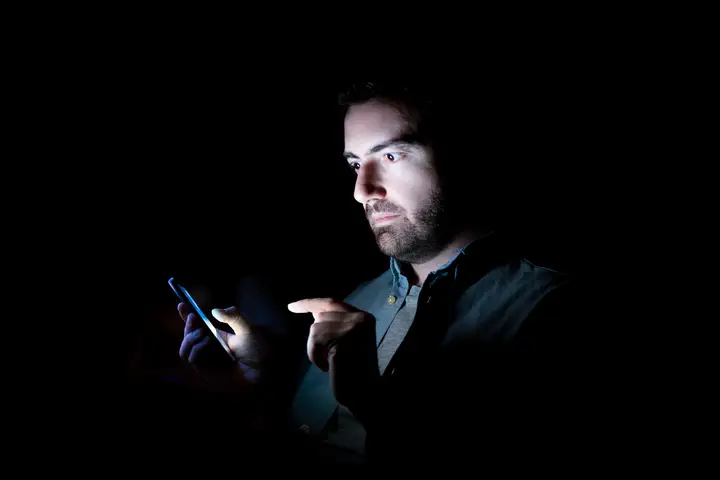Telepsychiatry or more popularly called video consultations is growing in popularity between patients, family members, and clinicians. But are they going to become the gold standard in the future? Can they be as good as "face to face" or even better? Let's find out.
The beginning of telemedicine in mental health dates back to 1959 at the Nebraska Psychiatric Institute, which used to provide group therapy, medical student training, or specialist consultations in the general hospital (liaison psychiatry).
In the 1990s telepsychiatry was used at a large scale in Australia, and this tool was able to support the unmet needs, given the wide geography. By the 2000s, with the revolution of the Internet, telepsychiatry was embraced in substantial volumes in the U.S. Research backed this tool, and new organizations were established providing guidelines - American Telemedicine Association ATA.
During the COVID-19 pandemic in 2020, mental health services started to adopt video consultations out of necessity. Some NHS organizations became the leader in providing video consultations, and I was lucky to be part of one of them. Being responsible for developing a new NHS Adult ADHD Service in Oxfordshire, we had to look beyond - the private sector. We realized for years there were services providing exclusive telepsychiatry, having excellent feedback and robust rating from the Care Quality Commission. Despite the usual constraints in funding the NHS, a telepsychiatry service took place.
Top 5 Pros of Video Consultations:
1) Having the ability to be seen anywhere in the country or globally, your provider may support you with an appointment when you are traveling abroad
2) You can invite to the appointment your loved ones, no matter where they live around the world to support you during your journey.
3) Video appointments are more reliable, and they are less likely to be canceled or delayed.
4) The confidentiality of video consultations is higher, offering you a discrete option to seek the support you need from your own comfort.
5) Reduces the traveling time, and provides comfort saving you the stress associated with planning the day: parking, transportation, and managing delays
The No.1 Great Benefit of Video consultations:
The use of technology and video appointments leads to a reduction of the carbon footprint in healthcare. The healthcare carbon footprint is estimated to be responsible for 4.4% of the global net emissions. As of July 2022 when writing this article, experiencing record temperatures in the UK at 40.3°C we need to consider and embrace more using technology, in delivering sustainable solutions for the future. Global warming is the most serious threat starting in the 1850s with the industrial revolution, find out more in NASA's article Global Warming vs. Climate Change | Facts – Climate Change: Vital Signs of the Planet (nasa.gov)

Photo by Jon Tyson on Unsplash
Can Video Consultations be better than usual care?
In my opinion, since most of the office work is currently in front of the computer, and video conference platforms - video consultations may be better indicated than in person. Video consultations have the ability to highlight the symptoms during ADHD assessment, and this has an added value when it comes to ADHD online video assessments, as they provide additional information compared with traditional methods.
With the adoption of Artificial Intelligence A.I, clinicians and patients will have additional tools for monitoring symptoms. Have a look at the innovative A.I driven MedTech Company Thymia - Using video games, analysis of facial microexpressions and speech patterns in helping mental health assessments to be objective, accurate, and faster.
Conclusion and the future
In order to provide ADHD high-quality video consultations, there needs to be access to high-quality cutting-edge equipment. The staff training is highly important because this needs to be tailored toward providing the best services to the patient, but also protecting the clinicians from developing burnout, screen fatigue, or conditions related to sedentary work. Robust policies and standard operating procedures need to be developed, as telemedicine implies beyond just a conversation on Zoom.
There are conditions and circumstances when in-person interaction is preferred and your provider should guide you in the right direction. However, for most situations, we have research available supporting " Telehealth can be equivalent or more clinically effective when compared to usual care " - The clinical effectiveness of telehealth - A systematic review.
What video consultations deliver is good clinical care, sustainability, and ease of access, necessary for any modern holistic service.
References
- The clinical effectiveness of telehealth: A systematic review of meta-analyses from 2010 to 2019 - PubMed (nih.gov)
- Does telemedicine reduce the carbon footprint of healthcare? A systematic review - PMC (nih.gov)
- Sustainable services | The King's Fund (kingsfund.org.uk)
- Bashshur RL, Shannon GW. History of telemedicine evolution, context, and transformation; Mary Ann Liebert, New Rochelle NY 2009:384-390.
- Hilty DM, Ferrer DC, Parish MB, et al. The Effectiveness of telemental health: A 2013 review. Telemed J E Health 2013;(19):444-454.
Disclaimer: The information is not intended nor implied to be a substitute for professional medical advice, diagnosis or treatment. All content, and information, contained in this article is for general information purposes only and does not replace a consultation with your own doctor/health professional
.svg)
.svg)





.svg)






